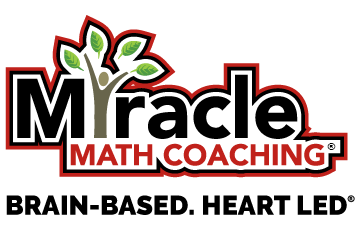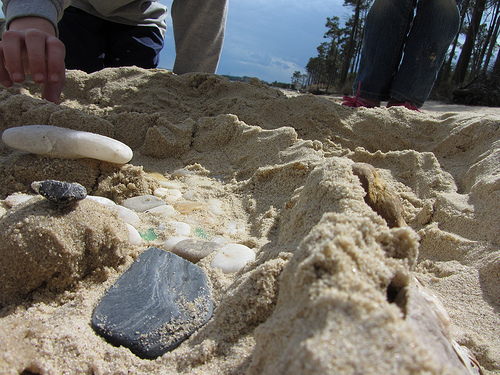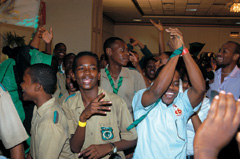What Happens when a Parent is too Involved?
A mother checks in on her newborn daughter in the middle of the night. After kissing the infant on the cheek, Mom goes back to bed. An hour later, she pads into the room to check again, then leaves. This goes on for an hour as the Mom tries to satisfy her need to know her daughter is safe. Finally, Mom crawls into the crib.
Creepy, huh?
That’s the opening scene in “Terms of Endearment,” a film about a mother’s obsession with her daughter. In today’s terms, she would be called a “Helicopter Parent.” I’ve written before about the harm Helicopter parents cause their offspring. Now there’s documented proof that it can be bad for your child.
According to the Harvard Family Research Project, research shows that “the children of helicopter parents earned lower grades.” No need to panic, though. The study theorizes that parents sometimes hover because their children are struggling. The bad grades spurred the “helicopters” and not the other way around.
A more pessemistic study by the University of Washington concludes that the children of micro-managing parents have an increased risk of depression and anxiety. All of that guidance and lack of independence will leave some children terrified of doing anything at all – they don’t want to make a mistake and upset Mom or Dad.
And what does “helicoptering” do to the parent? Usually, parents are over-involved because their children’s accomplishments increase their own self worth, ie “My kid’s a genius, and so I must be an amazing Dad.” Why is that a problem?
Because it wrecks the relationship between the parents with each other. Margaret Nelson, a professor of sociology at Middlebury College, in Vermont, conducted a study showing that as the amount of time they spend on parenting increases, “personal relationships seem to be the first thing to go.” Helicopter parents have less happy marriages, she says.
Debbie Pincus, author of “The Calm Parent AM and PM” provides six easy ways to stop the “hovering.” Here’s her summary:
6 Steps to Avoid Over-worrying and Helicopter Parenting
- Don’t hover over your child. Don’t tie your 5-year-old’s shoes when she can tie her own, or dress her when she can dress herself. Avoid hovering and holding her back from normal “risks” a child would take at her age level.
- Don’t put your worry on your child’s back.Don’t focus on your child morning, noon and night, imagining all the worst outcomes. Let go of negative thoughts about her future, like, “What if she doesn’t amount to anything when she grows up? Don’t look for evidence to confirm your worst fears about your child.
- Don’t make your child the center of your universe. Don’t try to get all your emotional needs met by your child. Most importantly, don’t allow his achievements to determine your self-worth and validation as a parent.
- Don’t label your child. Negatively (or even positively) labeling your child is not a good idea, because it can create a self-fulfilling prophecy, or push her into a box that isn’t right for her. Don’t remind one of your kids that she is “the pretty one” or “the funny one” or “the lazy one” or “the one who will turn out just like Dad.”
- Don’t take it personally if your child doesn’t agree with you, or does things differently from you.If you get in your child’s head, he won’t be able to hear his own thoughts and beliefs. Even if he thinks differently than you, don’t argue with him over it—instead, invite him to tell you more.
- Don’t focus on your child as a way of not having to deal with your own struggles.This is a big one, and can be very hard for parents. Try not to get so involved in your child’s life that you neglect your own.
And if you’re looking for extra academic support for your child, please visit our website at http://www.miraclemathcoaching.com, call me at 707-398-3474, ext. 2700 or email me anytime with questions. It would be my pleasure to serve you and your family and share my knowledge.
(Deanna@miraclemathcoaching.com)







